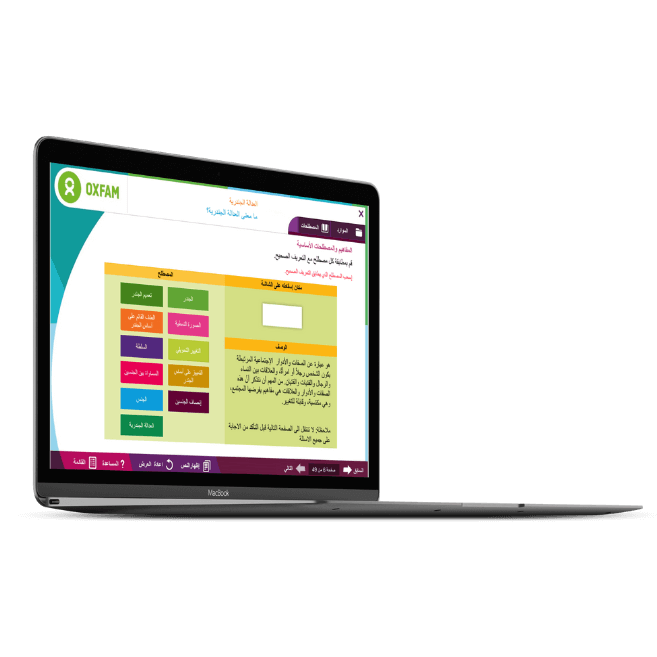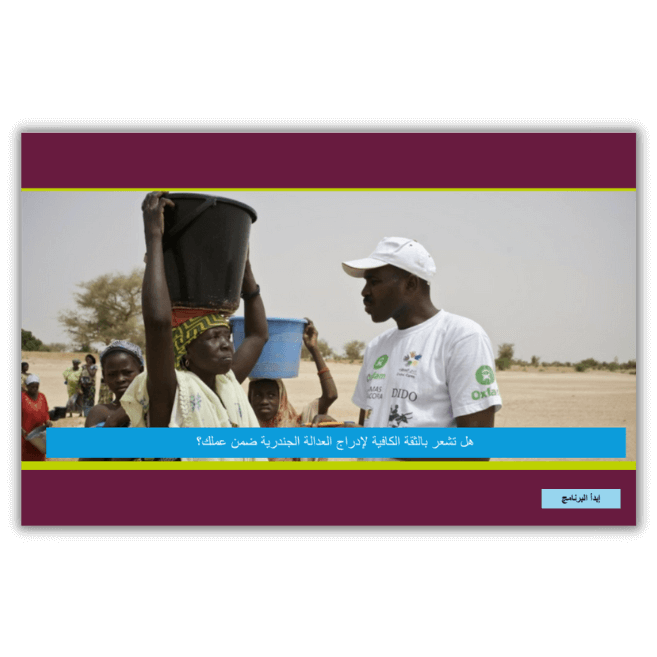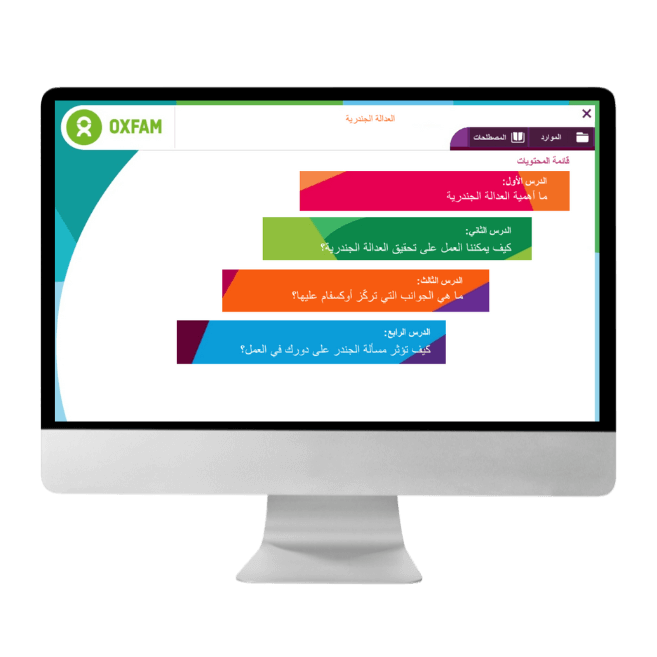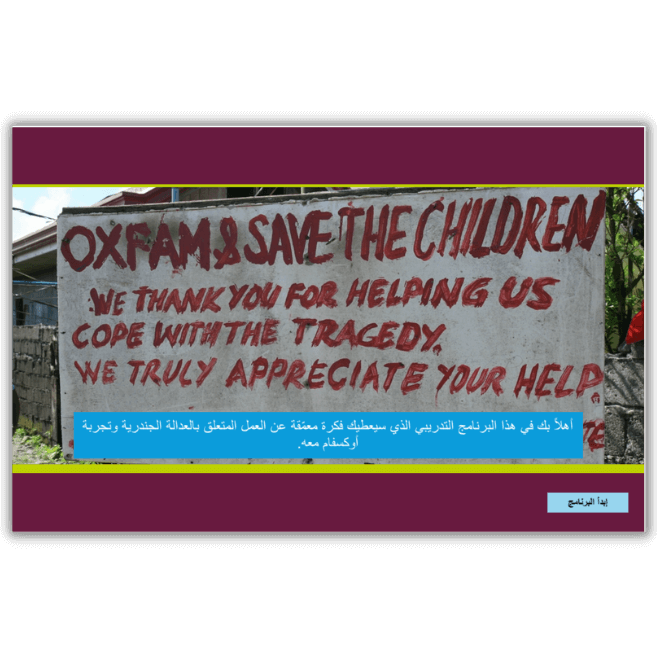CASE STUDIES

GENDER PROTECTION & PROPOSAL WRITING E-COURSE
For Oxfam GB, an international confederation of charitable organistions focused on the alleviation of global poverty, we have developed two, 1-hour, interactive e-courses to improve the quality of humanitarian delivery to people affected by the crisis in the region and raise general awareness on humanitarian principles. Starting from this concept, we have transformed the existing training material into online courses covering different humanitarian-related themes including “Safe Programming and Protection” and “Proposal Writing”.The delivery of the courses was facilitated through a cost-effective Moodle based platform that can be accessed online and offline for limited connectivity.
SERVICES USED:
Learning design, learning production and edTech consultancy
INDUSTRY:
Not for profit / charitable organisation
REAL RESULTS_
THE CHALLENGE_
We tackled three main challenges for this project:
The first challenge stemmed from the nature of the topics we are tackling. The learning objectives had both a knowledge and a practical angel. The main objective was to enable activists to seek funding and implement Sphere standards for safety and protection during a crisis situations. The learning experience had to be simple, informative, and includes practical tools.
The second challenge was working with multiple sources of information in several formats, different presentations, documents and files, which existed separately. We worked with multiple subject matter experts to extract, and redesign the content into a learning experience that was simple, coherent and flowing while achieving all the learning objectives.
The third challenge was related to limitations we needed to overcome. Learners are located in crisis zones with limited access to high-speed internet and facilities. The courses had to be simple and easy to access online but also facilitate the possibility to work with the material offline by downloading and updating completion on the platform when internet access was available.
All the latter had to be implemented within a limited budget and tight schedule.


THE SOLUTION_
The project’s allocated budget and resources were efficiently used to work on two main facets:
- Dedicating appropriate time and effort to work closely with the subject matter experts to review all the available material and design the course structure, identifying the learning objectives clearly and gathering the required information accordingly. This helped us build a solid plan that reduced the time and cost of production to create the best and most effective solution needed for these courses.
- Taking into account all the challenges and creating an interactive course that allows the user to learn the theory and practically apply it. The end result of the “proposal writing” course, for example, was a staged process of proposal writing, aiding the learner in filling out each section of an ideal proposal while being guided with recommendations and instructions.
The courses were implemented on an affordable LMS that was set up and hosted to keep within the tight budget while making the material available to learners with limited connectivity and allowing for offline download of material, therefore the learner can update their progress once they have connectivity. Consequently, all learners had direct access to the material (sometimes even on a CD), and only had to log in briefly to update their status before proceeding.
THE RESULTS_
The resulting courses ensured that the original training material is easily and properly accessed by broader number of humanitarians working on the ground to support people affected by the crisis in Syria, with:
- 259 enrolled learners
- Completion rate of 33.5%


